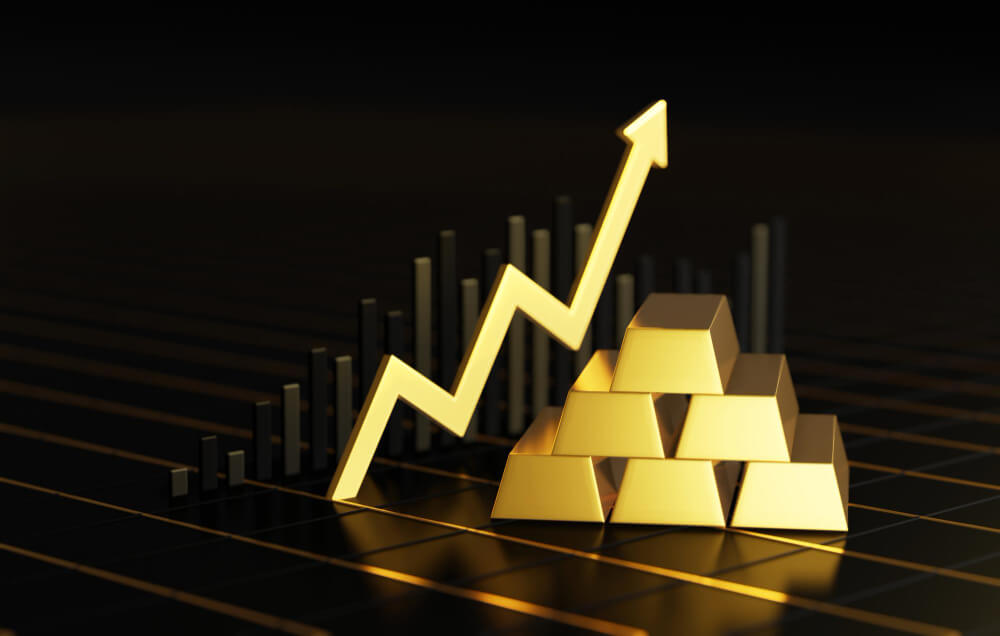Golden Opportunity: How Emerging Markets Are Sparking a Surge in XAUUSD Demand
The world of finance is ever-evolving, with the winds of change constantly reshaping the landscape of investment and trading. Within this dynamic realm, the allure of gold (XAUUSD) has remained a constant, seducing investors with its promise of security and profit in times of uncertainty. However, a new chapter is unfolding in the saga of this precious metal, driven by the burgeoning economies of emerging markets. This article delves into the intricate dance between emerging markets and the surge in demand for XAUUSD, exploring the multifaceted factors at play.
Introduction to XAUUSD
Gold, represented by the symbol XAUUSD in the forex market, stands as a beacon of stability and a hedge against inflation for investors around the globe. Its value, denominated in U.S. dollars per ounce, fluctuates based on a myriad of factors, including economic indicators, market sentiment, and geopolitical tensions. As we navigate through the currents of global finance, understanding the dynamics of XAUUSD is more crucial than ever.
The Allure of Gold in Uncertain Times

A Safe Haven Asset
Gold has historically been perceived as a safe haven during periods of economic instability. Its inherent value, unaffected by the policies of any single government or financial institution, makes it an attractive option for those looking to preserve wealth in turbulent times. As emerging markets experience growth, coupled with inherent volatility, the appeal of gold as a stabilizing investment becomes increasingly evident.
Hedge Against Inflation
Inflation can erode the purchasing power of currency, prompting investors to seek refuge in assets that maintain or increase in value over time. Gold is often seen as an effective hedge against inflation. As emerging economies grow, the potential for inflation rises, further driving the demand for gold as a protective asset.
Emerging Markets: Catalysts for Change
Economic Growth and Wealth Accumulation

Emerging markets are experiencing rapid economic growth, leading to increased wealth among both individuals and nations. This newfound prosperity enables a broader segment of the population to invest in gold, either directly through physical purchases or indirectly via financial instruments. The surge in demand from these regions is a significant factor in the global market dynamics of gold.
Increased Access to Gold Markets
Technological advancements and regulatory changes have made it easier than ever for investors in emerging markets to access global gold markets. Online trading platforms and ETFs (Exchange-Traded Funds) offer convenient avenues for investing in gold, democratizing the ability to hedge against economic uncertainties.
The Role of Central Banks in Emerging Economies
Diversification of Reserves
Central banks in emerging economies are increasingly diversifying their foreign exchange reserves by adding gold to their portfolios. This strategy not only reduces their reliance on the US dollar but also strengthens their financial stability. The collective action of central banks accumulating gold has a profound impact on global demand and prices.
Signal of Strength
When central banks of emerging markets increase their gold reserves, it sends a signal to the market about their confidence in gold’s enduring value. This, in turn, can influence investor sentiment, encouraging more individuals and institutions to turn to gold as a viable investment option.
Technological Innovation and its Impact on Gold Demand

Blockchain and Gold
Blockchain technology is revolutionizing the way gold is traded, offering increased transparency, security, and efficiency. Platforms leveraging blockchain allow for the tokenization of gold, making it possible to own and trade fractional amounts of gold without the need for physical storage. This innovation is particularly appealing to investors in emerging markets, where financial and logistical barriers to gold investment have traditionally been high.
The Rise of Digital Gold Platforms
Digital gold platforms are making it easier for investors from emerging markets to buy, sell, and hold gold. These platforms provide a seamless, secure, and cost-effective way to invest in gold, opening up the market to a wider audience. As these platforms gain popularity, the demand for gold is expected to rise further.
Socio-Political Factors Influencing Gold Demand

Geopolitical Tensions
Geopolitical tensions, particularly in regions close to emerging markets, can lead to increased demand for gold. In times of conflict or political instability, investors flock to gold as a means of protecting their wealth. This phenomenon underscores gold’s role as a safe haven asset.
Economic Policies and Regulations
Economic policies and regulations in emerging markets can also have a significant impact on gold demand. Policies that restrict access to foreign currencies or that lead to currency devaluation often drive investors towards gold. Similarly, favorable regulations regarding gold investment can stimulate demand.
Environmental Considerations and Gold Mining

Sustainable Mining Practices
As demand for gold increases, so does the focus on sustainable mining practices. Environmental concerns are prompting both producers and investors to consider the ecological impact of gold mining. Emerging markets, rich in mineral resources, are at the forefront of implementing environmentally friendly mining technologies.
The Ethical Dimension of Gold
The ethical considerations of gold production, including labor practices and community impact, are increasingly influencing investor decisions. Consumers and investors in emerging markets are showing a preference for ethically sourced gold, affecting demand patterns.
Future Outlook: The Golden Horizon

The interplay between emerging markets and the demand for gold is poised to shape the future of the XAUUSD market. As these economies continue to grow and evolve, their influence on the global stage will undoubtedly increase. The demand for gold, fueled by economic, technological, and socio-political factors, is expected to remain robust, with emerging markets playing a pivotal role in this dynamic.
Conclusion
The surge in XAUUSD demand, sparked by the vibrant economies of emerging markets, is a multifaceted phenomenon. It’s driven by economic growth, technological advancements, and a myriad of socio-political factors. As emerging markets continue to mature, their impact on the global gold market will likely expand, offering both challenges and opportunities for investors. Understanding the nuances of this relationship between emerging markets and gold demand is essential for anyone looking to navigate the complexities of the global financial landscape.
FAQs
1. Why is gold considered a safe haven asset?
Gold is considered a safe haven asset because it maintains its value and does not depend on the performance of a particular economy or financial system. Its historical stability in times of economic uncertainty makes it a preferred choice for preserving wealth.
2. How do emerging markets affect global gold demand?
Emerging markets affect global gold demand through increased investment and consumption due to economic growth, wealth accumulation, and technological advancements that make gold more accessible. Central banks in these regions also contribute by diversifying their reserves into gold.
3. What role does technology play in the gold market?
Technology, including blockchain and digital trading platforms, plays a significant role in the gold market by making it easier and more secure to trade gold. These innovations lower barriers to entry, making gold investment more accessible to a wider audience, especially in emerging markets.
4. How do geopolitical tensions influence gold prices?
Geopolitical tensions often lead to increased demand for gold as investors seek safe haven assets to protect their wealth. This heightened demand can drive up gold prices, reflecting its role as a sanctuary in times of uncertainty.
5. Are environmental and ethical considerations becoming more important in the gold market?
Yes, environmental and ethical considerations are becoming increasingly important in the gold market. Sustainable mining practices and ethical sourcing are influencing investor choices, with a growing preference for gold that is mined responsibly and ethically.




